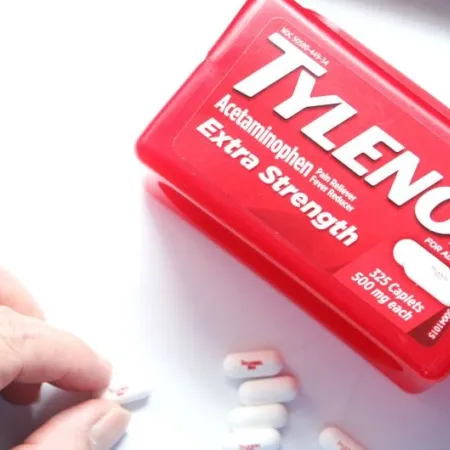Is beef tallow really healthier than seed oils?

neillangan - stock.adobe.com.
“Make frying oil tallow again,” said Health and Human Services Secretary Robert F. Kennedy, Jr. And just like that, Steak ‘n Shake switched from frying in seed oils to frying in beef tallow. Influencers sing beef tallow’s praises, but why? The answer may have more to do with bucking convention…because it’s certainly not due to any known health benefits.
What is beef tallow?
Beef tallow is rendered beef fat. Rendering means that the fat is melted and the solids like meat or other tissue are filtered out. Lard is rendered fat from pigs. Like other saturated fats, tallow is solid at room temperature.
What type of fat is in beef tallow? Is that what I should eat?
About half of the fatty acids in beef tallow are saturated. A tablespoon of beef tallow has a third of a day’s recommended limit for saturated fat.
And despite what you may have heard, saturated fat isn’t harmless. The evidence is clear: Saturated fat increases blood levels of LDL (“bad”) cholesterol and raises the risk of heart disease. Those findings are consistent across different types of evidence—from studies in animals to randomized intervention trials in people to large observational studies that ask people what they eat and follow them for decades.
After evaluating all that evidence, in 2017 the American Heart Association said: “We conclude strongly that lowering intake of saturated fat and replacing it with unsaturated fats, especially polyunsaturated fats, will lower the incidence of CVD.” (CVD stands for “cardiovascular disease.”)
In fact, the heart association’s analysis of the best randomized controlled trials shows that replacing artery-clogging saturated fats with unsaturated fats—like those found in plant-based oils like soybean, canola, and olive—slashes the risk of heart disease by a whopping 29 percent.
And newer observational research continues to support those conclusions. In a recent study that followed more than 220,000 people for up to 33 years, those with the highest intake of plant-based oils (including olive oil and seed oils like soybean and canola) had a lower risk of dying during the study. The researchers estimated that simply replacing about two teaspoons of butter with two teaspoons of plant-based oils each day was linked to a 17 percent lower risk of early death.
Is beef tallow better than butter?
Some beef tallow boosters claim that it doesn’t have the same cholesterol-raising effect as other saturated fats like butter. That’s because beef tallow contains stearic acid, which doesn’t raise LDL compared to other saturated fatty acids (though it raises it more than plant-based oils like soybean oil). But the focus on beef tallow’s stearic acid content is misleading. Only about 40 percent of the saturated fat in beef tallow is stearic acid. You’ll find more palmitic than stearic acid in tallow. And palmitic acid reliably raises LDL.
But why focus on fatty acids when you can just look at the effect of the foods that they’re in? Studies that have tested the impact of beef tallow are hard to find, making Kennedy’s insistence on its benefits hard to understand. But in one tightly controlled study, 10 men lived in a hospital and were fed (in random order) diets that provided 40 percent of their calories from either butter, beef tallow, or olive oil for three weeks each. Unsurprisingly, LDL was highest after the butter diet (it averaged 164 mg/dL) and lowest after the olive oil diet (140 mg/dL), with beef tallow (156 mg/dL) falling in the middle. (Those results weren’t exactly a slam dunk for the meat industry, which partly funded the study.) Translation: While beef tallow isn’t as bad for you as butter, you can do better. Opt for olive, soybean, canola, or other plant oils known to lower LDL.
Is beef tallow a good source of fat-soluble vitamins?
Some argue that beef tallow is a good source of the fat-soluble vitamins A, D, E, and K. It’s not. The USDA’s nutrient database indicates that one tablespoon of beef tallow has no vitamin A or K, less than 1 percent of a day’s vitamin D, and just 2 percent of a day’s vitamin E. (The UK’s nutrient database reports similar values.)
Looking for vitamins? Don’t look to beef tallow.
Is beef tallow better for you than seed oils?
No. Seed oils—like soybean, canola, sunflower, safflower, and grapeseed—have gotten an undeserved bad reputation, with detractors asserting that they cause inflammation and that their processing introduces toxic chemicals while stripping them of their nutrients. That’s an exaggeration.
For starters, seed oils don’t cause inflammation. In an analysis of 30 randomized trials, researchers found that eating more linoleic acid (one of the primary fatty acids in seed oils like soybean, corn, and grapeseed) was not linked to higher levels of inflammation.
And while the refining process does remove many nutrients (along with compounds that cause splattering, rancidity, and off-colors and odors), all oils contain the antioxidant vitamin E. If they didn’t, they’d go rancid in the bottle after just a few days. (You can get the lowdown on the evidence supporting more seed oil claims here.)
Much of the conversation about seed oils versus beef tallow is focused on what’s healthier in a deep-fat fryer. Answer: seed oils. Better answer: Eat less deep-fried food.
Take-home message
Beef tallow is having a moment, but it’s no health food. Ignore the hype and stick with healthier plant-based oils like olive, canola, soybean, or avocado.
Support CSPI today
As a nonprofit organization that takes no donations from industry or government, CSPI relies on the support of donors to continue our work in securing a safe, nutritious, and transparent food system. Every donation—no matter how small—helps CSPI continue improving food access, removing harmful additives, strengthening food safety, conducting and reviewing research, and reforming food labeling.
Please support CSPI today, and consider contributing monthly. Thank you.
More on fact vs fiction
Folic acid is the best choice for a healthy pregnancy
Fact vs. Fiction

What the science says about Tylenol and autism
Fact vs. Fiction

Trump distorts facts on autism, Tylenol, and vaccines, scientists say
Government Accountability

ChatGPT: Can you trust its advice about diet & health?
Preventing Disease

‘Alternative facts’ aren’t a reason to skip vaccines
Vaccines


